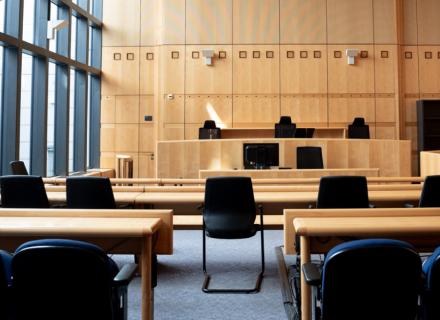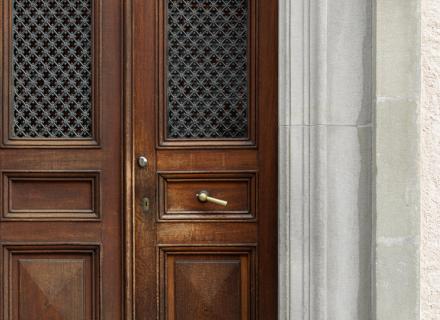Information for witnesses
You are a person summoned as a witness and would like to know more about your role? Giving testimony is a civic duty that is carried out according to precise rules, involving rights and obligations for the person called to testify.
What is a witness's role?
In the context of judicial, civil, criminal or administrative proceedings, all procedural laws provide for a full range of possibilities for the judge/prosecutor in charge of a case to hear witnesses in order to establish the facts.
Testimony is a means of proof used by judges or parties to establish facts. It is sometimes the only means of proof, for example, when no written document has been drawn up between the litigants, or when they make statements that contradict each other.
As a witness, you are not involved in the trial.
What are a witness's duties?
Obligation to attend
In exceptional cases, you may request that the hearing be postponed to a later date, for good reason (e.g. illness). You must then immediately inform the judicial authorities, providing proof of your inability to attend (e.g. a medical certificate).
If you are physically unable to attend, the judge/prosecutor may, in case of emergency, come to your bedside with a clerk to take your statement.
Duty to testify
However, the law provides for certain exceptions. You can refuse to collaborate, for example, when:
- In civil and criminal proceedings, if you have close family ties with a party (within the meaning of Art. 165 of the Swiss Civil Procedure Code or Art. 168 of the Swiss Criminal Procedure Code), for example, blood relatives, adoptive parents, step-relatives, sisters, brothers, spouses.
- If your testimony could give rise to civil or criminal liability for you or your family members.
- If you are subject to the obligation of professional confidentiality as a civil servant or state employee, you may only be heard as a witness if the authority to which you report lifts your obligation of professional confidentiality. If you are released from your duty of professional confidentiality by the competent higher authority, you may not refuse to testify.
- Some people are prevented from testifying because of professional confidentiality which binds them to a party (e.g. lawyer, doctor, clergyman, etc.). However, if such a person is released from secrecy by the party who has entrusted him or her with it, he or she may testify as a witness, but is under no obligation to do so.
It should be noted that in administrative proceedings, parents in the direct ascending and descending line; sisters and brothers; aunts and uncles; nieces and nephews; in-laws to the same degree; spouse and ex-spouse; registered partner and ex-registered partner; children under the age of 16 and members of legal entities in cases where the legal entity is a party, may only be heard for information purposes, i.e. without being urged to tell the truth (within the meaning of art. 31 of the Geneva Administrative Procedure Act). The judge will take their statements into account, but with the necessary distance arising from their relationship with the parties to the proceedings.
Duty to tell the truth
Perjury constitutes an offence within the meaning of Article 307 of the Swiss Criminal Code, which stipulates that its perpetrator may be punished by a custodial sentence of up to 5 years or a monetary penalty.
In criminal proceedings, perjury can, in certain cases, lead to the immediate arrest of the perpetrator.
What is the procedure?
During the hearing, the judge/prosecutor (in charge of the case) will ask you the questions he/she deems necessary to establish the facts. You may also be questioned by the parties' lawyers, or by the parties themselves if they are not represented.
If you are called as a witness, you do not know what you will be questioned about. You cannot know the questions in advance, nor can you prepare the answers. All you must do, is state what you know or remember.
The bulk of your statement will be recorded in a report, which you must read over and sign at the end of your hearing.
What are the available indemnities?
Testifying is a civic duty. However, you may, on request, receive compensation to cover any travel expenses and, if you are self-employed, loss of earnings. The judge / prosecutor (in charge of the case) will determine the amount of compensation based on supporting documents.
Your indemnities can either be cashed directly with the Services of the Judiciary Power or paid later.
Questions/réponses
You do not need to be supported by a lawyer.
The duration of the hearing varies from ten minutes to several hours, depending on your knowledge of the facts and the usefulness of your testimony. If your hearing is prolonged, the judge / prosecutor (in charge of the case) may decide to call you to a new hearing, to proceed with the rest of your testimony.
Yes, you are obliged to come to the hearing. If you live in another canton or abroad, this is no excuse for not attending the hearing.
Yes, it is compulsory, and your employer cannot object. Please note that your employer cannot reduce your salary if you are called away from your place of work to attend court as a witness. You must not suffer any financial loss as a result of your absence.
Persons alleging to have suffered physical, psychological, or sexual harm and called to testify or to be heard for information purposes may be accompanied by a confidant. They may also be assisted by a counsel of their choice. They have the right to refuse to answer questions concerning their private life, and to be heard in the absence of the parties.



